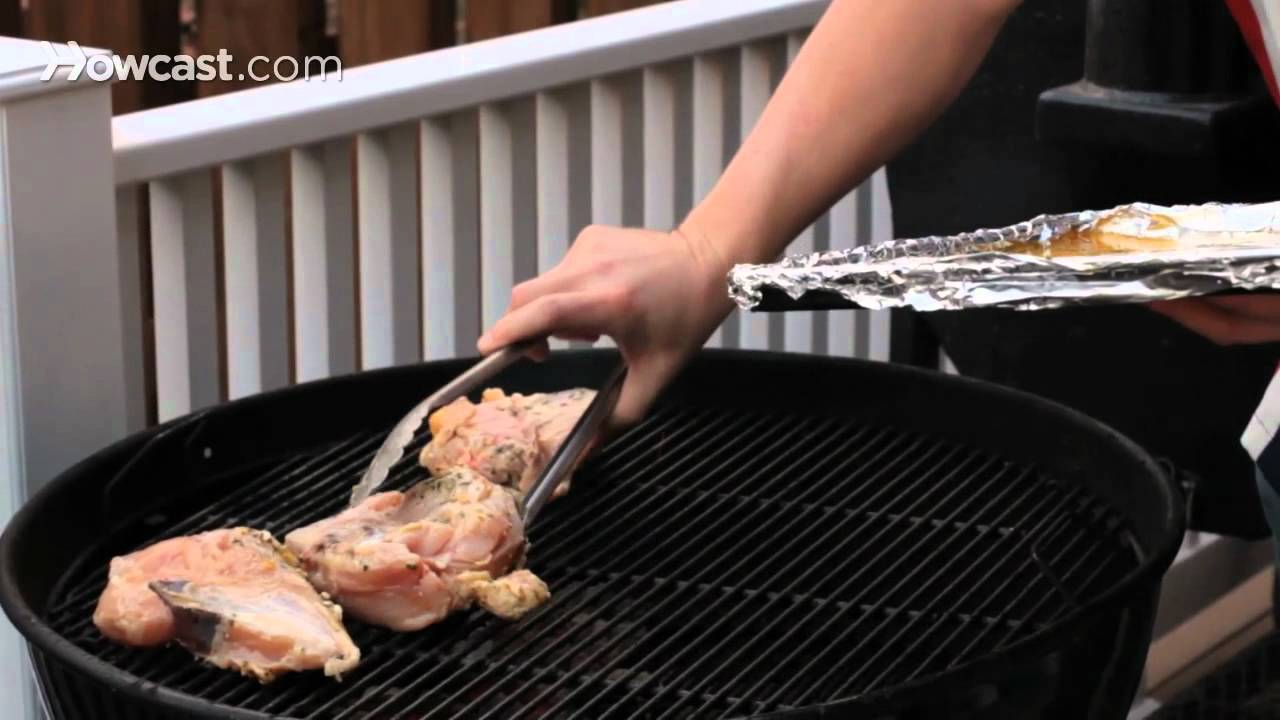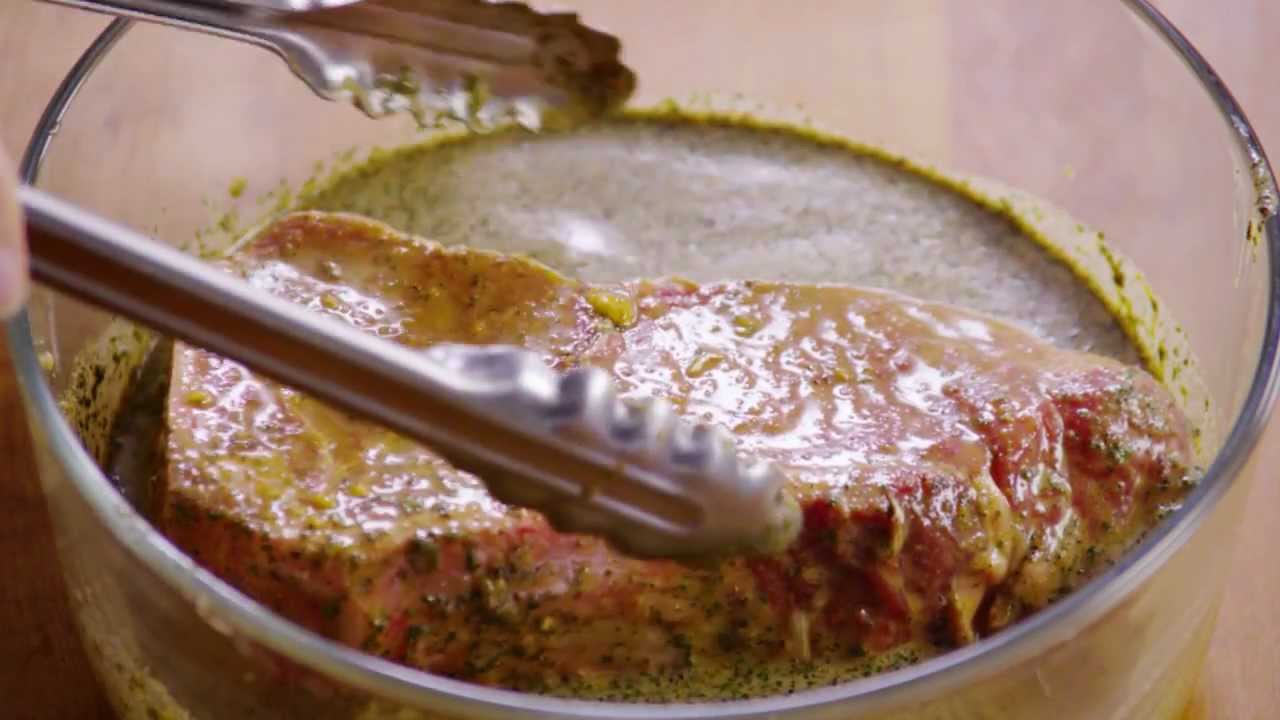Marinade recipes are a great way to jazz up something as potentially unexciting as chops or chicken breast into something that dazzles the taste buds – really just for pennies and very little effort.
Just for the sake of clarity, a marinade is the liquid that foods are soaked in, and marinate refers to the actual process – i.e. you marinate meat in a marinade.
They are used mainly to flavor food and tenderize it to a certain degree. They also help keep the meat moist above the intense heat of a BBQ grill.
They are great with all types of meat, fish, and even vegetables.
They usually consist of oil, herbs, and spices mixed with something acidic – either vinegar or citrus juice. An exception to this rule are Indian marinades, which are often made with plain yogurt – see the tikka marinade recipe – but even this performs the same role.
The process of soaking food in such a concoction makes it softer, although it hardly penetrates more than 1/8 inch past the surface, it causes the meat to be infused with flavor and color.
Here are a few of our favorite marinade recipes
A Rough Guide to Making Your Own Marinades
Think of a marinade recipe as being like a salad dressing, it acts as a seasoning and adds flavor, but gets an extended period of time to do its job.
For a Mediterranean style, marinade takes equal measures of olive oil, balsamic vinegar, mix in a little mustard. You could add some chopped rosemary, or oregano, salt, and pepper, garlic.
For something more acidic, substitute the vinegar for lemon juice and grated zest. Note that oil, acid, seasoning and some other flavoring (a herb usually works) are all things that could go in a salad dressing.
The trick is to keep it all balanced, don’t put too much of a favorite ingredient in.
Given the sheer number of flavorings that can be used in a marinade, it follows that there is a lot of scope for experimentation.
Equipment
No special equipment is needed, except to point out that a copper or aluminum bowls for mixing or marinating will leave a nasty metallic taste. Always use a glass, ceramic or stainless steel bowl.
Some chefs use a sealable plastic bag for marinating. Put the marinade and meat inside, squeeze out the air and seal it. It takes up less space in the fridge if nothing else.
Marinate Timings
The amount of time to marinate depends on the meat you’re using. There is no advantage to leaving it for a longer time – and the grain of the meat may be damaged anyway.
As rule seafood take the least time at 30 minutes maximum – beef or lamb joints can be left for 2-8 hours, or even 24-48 hours if using a yogurt-based marinade.
Below are some rough timings for reference.
- Prawns – 15 minutes
- Fish – 20-30 minutes
- Chicken – 20-60 minutes (depending on the amount of ‘acid’ used)
- Pork chops – 45-60 minutes
- Lamb chops – 45-60 minutes
- Beefsteak – 45-60 minutes
- Beef roast/joint – 2-3 hours
- Lamb roast/joint – 2-3 hours
- Pork roast/joint – 2-3 hours
A few final Tips
As a rule of thumb, a 1/4 to 1/3 cup will cover 1/2 pound of meat.
Marination requires some forward planning, especially if the meat needs a few hours. You can prepare it before you go out for the day to work or wherever and have something delicious when you get back.
Always refrigerate meat if it needs to marinate for a period of hours.
When you come to grill the meat, use any remaining marinade to baste it with – this will really add extra punch to the flavor.
Never consume raw marinade if it’s had meat in – if it’s used at all, it needs to be cooked like anything else.
If you’re not sure, make some extra and set it aside for basting.
Further Related Reading
BBQ sauce is delicious and can work as a baste, or left on for a while as a marinade.
Dry rubs are another alternative.



